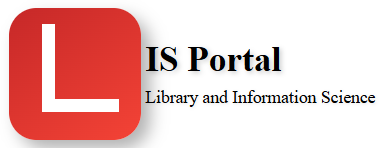Implications of first laws of Library and information science
The first law of Library and Information Science, “Books are for use,” states that the primary purpose of a library is to provide access to information for its users. This law has several implications in the field of Library and Information Science:
a) Library Location
b) Working Hours
c) Library Building and Furniture
d) Staff
Overall, the first law of Library and Information Science, “Books are for use,” emphasizes the importance of putting the needs of users first and providing them with the information they need in an accessible and efficient manner.
The second law of Library and Information Science, “Every reader his or her book,” states that every reader should have access to the information resources that meet their individual needs and preferences. This law has several implications in the field of Library and Information Science:
a) Obligation of the State
b) Obligations of the Library Authority
The third law of Library and Information Science, “Every book its reader,” states that every book should have a reader who is interested in and can benefit from its content. This law has several implications in the field of Library and Information Science:
Adopting an open access system
Matching resources with users: The law implies that libraries and information centers should strive to match information resources with users who are interested in and can benefit from them.
Outreach and promotion: The law highlights the importance of outreach and promotion efforts, to ensure that information resources are discovered and used by the individuals who can benefit from them.
User engagement: The law promotes user engagement, as it encourages libraries and information centers to create programs and activities that encourage readers to actively seek out and engage with information resources.
Collection development: The law also implies that libraries should carefully consider the needs and interests of their users when developing and managing their collections, to ensure that every book has a reader.
Overall, the third law of Library and Information Science, “Every book its reader,” emphasizes the importance of matching information resources with users who are interested in and can benefit from them, and promoting active engagement with information resources.
The fourth law of Library and Information Science, “Save the time of the reader,” states that libraries and information centers should aim to make information resources easily accessible and save the time of their users. This law has several implications in the field of Library and Information Science:
Efficient information retrieval: The law implies that libraries and information centers should provide efficient information retrieval systems and tools to help users quickly and easily find the information they need.
User-friendly interfaces: The law highlights the importance of designing user-friendly interfaces that are intuitive and easy to use, to save the time of users who are searching for information.
Relevance: The law also implies that libraries should prioritize the provision of relevant and high-quality information resources, to save the time of users who would otherwise waste time searching for information of little value.
Timely services: The law encourages libraries and information centers to provide timely services and respond to user requests in a prompt and efficient manner, to save the time of users who are seeking information.
Overall, the fourth law of Library and Information Science, “Save the time of the reader,” emphasizes the importance of providing efficient and user-friendly services and resources that save the time of users who are searching for information.
The fifth law of Library and Information Science, “Library is a growing organism,” states that libraries and information centers should be dynamic and continually evolving to meet the changing needs of their users and the development of new information technologies. This law has several implications in the field of Library and Information Science:
Adaptability: The law implies that libraries and information centers should be adaptable and able to change and evolve as the needs and preferences of their users change.
Continuous improvement: The law highlights the importance of continuous improvement, as libraries and information centers should continually strive to improve their services and resources to better meet the needs of their users.
Technological innovation: The law encourages the use of technology to improve and enhance library services and resources, and to keep pace with the rapidly changing world of information technology.
Professional development: The law also implies that library professionals should continuously develop their skills and knowledge to ensure that they are able to provide the best possible services and resources to their users.
Overall, the fifth law of Library and Information Science, “Library is a growing organism,” emphasizes the importance of adapting to change, continuously improving services and resources, and embracing technological innovation to ensure that libraries and information centers are able to meet the changing needs of their users.
